- Home
- Michael Swanwick
The Year's Best Science Fiction (2008 Edition) Page 11
The Year's Best Science Fiction (2008 Edition) Read online
Page 11
2) John was going to tell us that we were in for a cold winter. He'd make it sound like he was just reading the signs, like he had all this lore, the fuzzy caterpillars coming early or being especially fuzzy or some such thing. He was going to remind us that he hadn't always lived in California so he knew what a cold winter really was. He was going to say that Californians didn't know cold weather from their asses.
3) Frankie was going to say that it wasn't her job to tape our mail shut for us and she wasn't doing it anymore, we needed to bring it already taped.
4) Anna was going to complain that her children wouldn't talk to her just because she'd spent their inheritance on immortality. That their refusal to be happy for her was evidence that they'd never loved her.
5) Harry was going to tell us to let a smile be our umbrella.
6) Brother Porter was going to wonder why the arcade wasn't bringing in more money. He was going to add that he wasn't accusing any of us of pocketing, but that it did make you wonder how all those tourists could stop and spend so little money.
7) Kitty was going to tell us how many boys in the arcade had come onto her that day. Her personal best was seventeen. She would make this sound like a problem.
8) Harry would tell us to use those lemons and make lemonade.
9) Vincent was going to say that he thought his watch was fast and make everyone else still wearing a watch tell him what time they had. The fact that the times would vary minutely never ceased to interest him and was good for at least another hour of conversation.
10) Frankie was going to say that no one ever listened to her.
It was a kind of conversation that required nothing in response. On and on it rolled, like the ocean.
Wilt always made me laugh and that never changed either, only it took me so much longer to get the joke. Sometimes I'd be back at Always before I noticed how witty he'd been.
* * * *
What Happened Next:
Here's the part you already know. One day one spring—one day when the Canada geese were passing overhead yet again, and we were out at the arcades, taking money from tourists, and I was thrilling for the umpteenth time to the sight of the migration, the chevron, the honking, the sense of a wild, wild spirit in the air—Brother Porter took Kitty out to the cathedral ring and he died there.
At first Kitty thought she'd killed him by making the sex so exciting, though anyone else would have been tipped off by the frothing and the screaming. The police came and they shermanned their way through Always. Eventually they found a plastic bag of rat poison stuffed inside one of the unused post office boxes and a half drunk cup of Hawaiian Punch on the mail scale that tested positive for it.
Inside Always, we all got why it wasn't murder. Frankie Frye reminded us that she had no way of suspecting it would kill him. She was so worked up and righteous, she made the rest of us feel we hadn't ever had the same faith in Brother Porter she'd had or we would have poisoned him ourselves years ago.
But no one outside of Always could see this. Frankie's lawyers refused to plead it out that way; they went with insanity and made all the inner workings of Always part of their case. They dredged up the old string of arsons as if they were relevant, as if they hadn't stopped entirely the day Brother Porter finally threw his son out on his ear. Jeb was a witness for the prosecution and a more angelic face you never saw. In retrospect, it was a great mistake to have given immortality to a fourteen-year-old boy. When he had it, he was a jerk, and I could plainly see that not having it had only made him an older jerk.
Frankie's own lawyers made such a point of her obesity that they reduced her to tears. It was a shameful performance and showed how little they understood us. If Frankie ever wished to lose weight, she had all the time in the world to do so. There was nothing relevant or even interesting in her weight.
The difficult issue for the defense was whether Frankie was insane all by herself or along with all the rest of us. Sometimes they seemed to be arguing the one and sometimes the other, so when they chose not to call me to the stand I didn't know if this was because I'd make us all look more crazy or less so. Kitty testified nicely. She charmed them all and the press dubbed her the Queen of Hearts at her own suggestion.
Wilt was able to sell his three years among the immortals to a magazine and recoup every cent of that twenty-five hundred he put up for me. There wasn't much I was happy about right then, but I was happy about that. I didn't even blame him for the way I came off in the article. I expect coquettish was the least I deserved. I'd long ago stopped noticing how I was behaving at any given moment.
I would have thought the trial would be just Mother's cup of tea, even without me on the witness stand, so I was surprised not to hear from her. It made me stop and think back, try to remember when her last letter had come. Could have been five years, could have been ten. Could have been twenty, could have been two. I figured she must be dead, which was bound to happen sooner or later, though I did think she was young to go, but that might only have been because I'd lost track of how old she was. I never heard from her again so I think I had it right. I wonder if it was the cigarettes. She always said that smoking killed germs.
Not one of the immortals left Always during the trial. Partly we were in shock and huddled up as a result. Partly there was so much to be done, so much money to be made.
The arcade crawled with tourists and reporters, too. Looking for a story, but also, as always, trying to make one. “Now that Brother Porter is dead,” they would ask, exact wording to change, but point always the same, “don't you have some doubts? And if you have some doubts, well, then, isn't the game already over?” They were tiresome, but they paid for their Hawaiian punch just like everyone else and we all knew Brother Porter wouldn't have wanted them kept away.
Frankie was let off by reason of insanity. Exactly two days later Harry Capps walked into breakfast just when Winnifred Allington was telling us how badly she'd slept the night before on account of her arthritis. By the time he ran out of bullets, four more immortals were dead.
Harry's defense was no defense. “Not one of them ever got a good night's sleep,” he said. “Someone had to show them what a good night's sleep was.”
The politicians blamed the overly-lenient Frankie Frye verdict for the four new deaths and swore the same mistake would not be made twice. Harry got life.
* * * *
Why I'm Still Here:
Everyone else either died or left and now I'm the whole of it. The last of the immortals; City of Always, population one. I moved up to the big house and I'm the postmistress now, along with anything else I care to keep going. I get a salary from the government with benefits and a pension they'll regret if I live forever. They have a powerful faith I won't.
The arcade is closed except for the peep shows, which cost a quarter now and don't need me to do anything to run them but collect the coins after. People don't come through so much since they built the 17, but I still get customers from time to time. They buy a postcard and they want the Always postmark on it.
Wilt came to fetch me after the noise died down. “I brought you here,” he said. “Seems like I should take you away.” He never did understand why I wouldn't leave. He hadn't lived here long enough to understand it.
I tried the easy answer first. I got shot by Harry Capps, I said. Right through the heart. Was supposed to die. Didn't.
But then I tried again, because that wasn't the real answer and if I'd ever loved anyone, I'd loved Wilt. Who'll take care of the redwoods if I go? I asked him. Who'll take care of the mountains? He still didn't get it, though he said he did. I wouldn't have known how to leave even if I'd wanted to. What I was and what he was—they weren't the same thing at all anymore. There was no way back to what I'd been. The actual living forever part? That was always, always the least of it.
Which is the last thing I'm going to say on the subject. There is no question you can ask I haven't already answered and answered and answered again. Time without end.
; [Back to Table of Contents]
* * *
AN OCEAN IS A SNOWFLAKE, FOUR BILLION MILES AWAY
John Barnes
Thorby had kept up his resistance training, but he'd been on Boreas for most of a year so he'd worried about agravitic muscular dystrophy. You could never quite trust a gym centrifuge, or the record-keeping software, or most of all your own laziness. You might set things too low, lie to the records, anything to not be quite so sore and stiff for just a couple days, or to have a few days of no aches, and before you knew it you hadn't actually worked out in a month, and you'd be falling down weak at your next port. He'd missed recording the first calcium bombardment of Venus from ground level for that very reason, not working out while he'd been in the orbital station for three months before.
People always said you could make it back by working out in the high gravity on the ships between the worlds, but the ships boosted at a gee and a half until they started braking at four gee, so you spent all your time lying down or doing gentle stretches at best, and most trips weren't long enough anyway. And besides this had been less of a voyage and more of a hop; Boreas was very close to Mars now.
The comfortable grip of his feet on the train station platform, confirming that he was truly ready for Mars's real gravity, was as acute a pleasure as the clean thinness of bioprocessed air lightly stained with smells of coffee, frying meat, lubricant, and fresh plastic, as much as the pink late afternoon light flooding the train station, as much as the restless waves and murmurs of crowd noise.
He could have laughed out loud at how good it felt to be in his skin, standing on the platform at Olympus Station, a throng of eager hikers, sailplaners, and mountaineers all around him, the whole scene turned warm and sentimental by the pink light pouring in through the immense dome that arched above them.
It had been a decade since he'd been on Mars, a planet like the rest of the solar system: a place he always came back to, because he never went home.
“Thorby!” Léoa emerged from the crowd, saw him, and waved; he walked toward her slowly, still relishing the feel of having good ground legs.
“So do I look like me?” she asked. “Did you know that back in the protomedia days, when they had recording tech but things hadn't fused yet, that it was a cliché that people always looked better than their pictures?”
“I've mined protomedia for images and sounds too. My theory about that is that you couldn't get laid by telling the picture that it was the better-looking one.”
“You're an evil cynic. Pbbbt.” Even sticking her tongue out, she was beautiful.
So was he. All documentarians had to be, the market insisted.
“I never used pixel edit on myself,” she said. He wasn't sure if she sounded proud or they were just having a professional discussion. “So screen-me does look unusually like real-me. I'll do a docu about the way people react to that, someday. Want to get a drink, maybe a meal? It's hours till our train.” Without waiting for him to say anything, she turned and walked away.
Hurrying to catch up beside her, he called, “Baggins, follow,” over his shoulder. His porter robot trailed after them, carrying Thorby's stack of packed boxes. Everything physical he owned still fit into a cube with sides shorter than his height. “Did you have a good trip in?” he asked her.
“For me it's always a great one. I've been here for six Martian seasons, three Earth years, and I'll never be one of the ones that shutters the window to concentrate on work. I came in from Airy Zero City via the APK&T.”
“Uh, it's been a long time since I've been on Mars, is that a railroad?”
“Oh, it's a railroad—the grandest on the planet. The Airy Zero City-Polar Cap-Korolev-and-Tharsis. The one that tourists take if they only have one day on Mars. Also the one we'll be taking up to Crater Korolev for jump-off. Among many other things it runs around the edge of the northern ice cap. Strange to think it won't be long before it stops running. They're just going to leave it for the divers, you know, and maybe as a spread path for some of the seabed fauna. More to be lost.”
“If we're going to start bickering,” Thorby said, smiling, “shouldn't we be recording it? Or will that draw too much attention?”
“Not on Mars. It's a tourist planet—pretending celebs aren't there is de rigueur. And you don't look much like your teenaged pictures anymore.”
“They were mostly in a spacesuit where you couldn't see my face anyway,” he pointed out. “And I don't use my face in my docus. I was thinking mainly about you.”
“Pbbbt. I never was much of a celeb. There won't be fifty people in all these hundreds who have ever seen any of my work. So the short answer is, if anything, it might be some worthwhile free publicity to do the interview while we walk through here. I'll bring out my stalkers.” She whistled, a soft high-pitched phweet!—toooeee ... wheep.
A hatch opened on the porter humming along at her heels. A metal head on a single stalk popped up. The stalker hopped out and raced ahead of them to get a front view. Four more stalkers leaped out like toy mouse heads roller-skating on pogo sticks, zipping and bounding to form a rough, open semicircle around Thorby and Léoa, pointing their recording cameras back at the two people, and using their forward sensing to zigzag swiftly and silently around everything else.
“I intend to look sincere and charming,” Léoa said. “Do your best to look philosophical and profound.”
“I'll try. It might come out bewildered and constipated.”
She was nice enough to laugh, which was nicer than he was expecting. They descended the wide steps onto the broad terrace, far down the low, northwest side of the dome, and took a table near the dome surface, looking northwestward from Mount Olympus across the flat, ancient lava lake and into the broken, volcanic badlands called sulci beyond it. “Our ancestors would have found a lot of what we do utterly mad,” Léoa said, “so I suppose it's comforting that we can find one thing they did explicable.”
“You're trying to get me to say something for the documentary.”
“You're spoiling the spontaneity. Of course I notice you do that all the time in your own documentaries.”
“I do. Spontaneity is overrated when you're covering big explosions and collisions. They only happen once, so you have to get them right, and that means looking in the right place at the right time, and that means a ton of prep.”
“All right, well, have you had enough time to prepare to talk about something the ancestors would consider insane? What do you think about putting a train station on top of the highest mountain in the solar system?”
“Where else would you put it? People who want to climb the mountain still can, and then they can take the train home. People who just want the view just take the train both ways. And once it starts to snow seriously around here, the skiing is going to be amazing. So of course there's a train station here. They put it here to attract trains, the way Earth people put out birdfeeders to attract birds.”
She nodded solemnly and he realized she was doing a reaction shot on him, showing her sincerity and trust. He looked away, out through the dome.
“You're getting lost in the sky,” Léoa said.
“I like the pink skies here.”
“Doesn't it bother you that there will probably only be a thousand or so more of those?”
“Not any more than it bothers me that I've missed billions of them before I was born.”
“What about the people who will never see it?”
“They'll get to surf the new ocean, and stretch out on the beaches that all the dust washing out of the sulci and down the canyons will form. They'll love that, in their moments. In my moment, I'm relishing a late afternoon pink sky.”
The stalker in the center was spinning back and forth, pointing its camera at each of them in turn; so now it was a ping-pong match. They did more verbal sparring and genned more quotes and reactions, ensuring they'd both have plenty to work with when the coproject went to edit. After a while they ordered dinner, and she stopped fi
shing for him to confess to imperialism or vandalism or whatever she was going to call it.
She told her Stalker Number Three to silhouette him against the darkening sky and the landscape far below. The little robot leaped up, extended its pencil-thin support to a bit over two meters, and silently crept around to shoot slightly down on Thorby and get the horizon into the picture.
When Boreas rose in the northwest, covering much of the sky, they both said “more profounder versions of what we already said,” as Léoa put it, while the stalkers recorded them with their back to the dome wall. Léoa had her stalkers stand tall, extending till they were about three meters high, to catch the brilliant white light that the huge comet cast into the sulci below; Thorby positioned his low, to silhouette them against the comet head itself. The huge station mezzanine around them, in the brilliant bluish-white light, looked like some harsh early photograph with artificial lighting.
Over coffee and dessert, they watched the fast-rising comet swim through the northern constellations like a vast snake coiling around Cepheus and the Bears before diving over the northeast horizon, making a vivid arc different from that of anything else in the heavens. Finally it was late and they went to their rooms at the station hotel for the night. Thorby managed not to say anything about liking to see stuff smashed up, and she avoided saying she really preferred bare, dead rock and sand to forests and meadows, so the first day was a tie.
* * * *
They got off at Korolev Station, on the south side of the crater, pulled on Mars suits, loaded the porters, and walked out past the stupa that was another of the most-photographed places in the solar system.
Crater Korolev was as far north on Mars as Novaya Zemlya on Earth, nearly circular, about seventy kilometers across, with sharply reared crater walls all around. It was a natural snow trap, gathering both water ice and dry ice in mixtures and layers.
In a midmorning of Martian spring, the crater floor far below them had its own weather, gas geysers spraying snow, explosive sublimations that sent ground blizzards shooting out radially from suddenly exposed snowfields, and an occasional booming flash-and-crack between the whorls of fog that slithered just above the snow, almost a kilometer below the observation point behind the stupa. Monks in orange Mars suits, on their way to and from the long staircases that zigzagged from the stupa down to another stupa on the crater floor, passed between their stalkers, even less interested in the stalkers than the stalkers were in them.

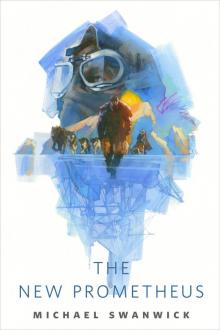 The New Prometheus
The New Prometheus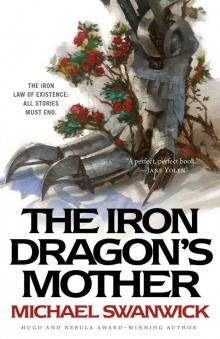 The Iron Dragon’s Mother
The Iron Dragon’s Mother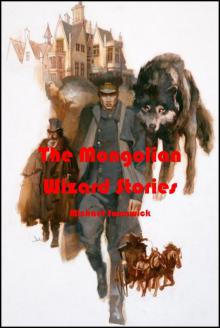 The Mongolian Wizard Stories
The Mongolian Wizard Stories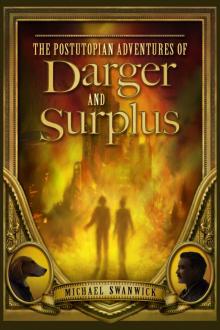 The Postutopian Adventures of Darger and Surplus
The Postutopian Adventures of Darger and Surplus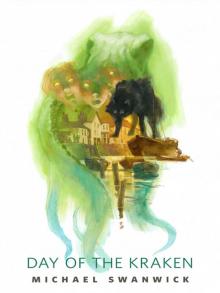 Day of the Kraken
Day of the Kraken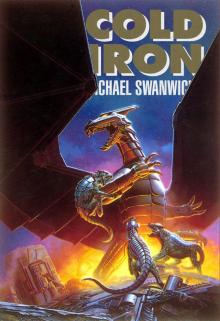 Cold Iron
Cold Iron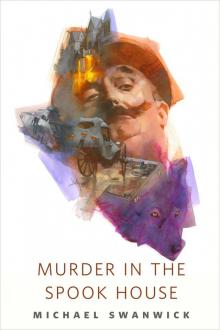 Murder in the Spook House: A Tor.com Original
Murder in the Spook House: A Tor.com Original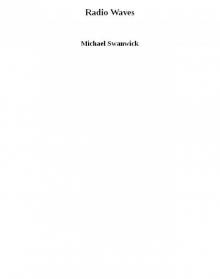 Radio Waves
Radio Waves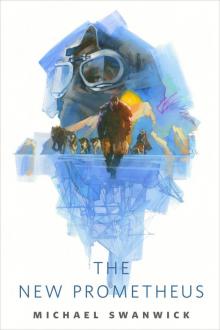 The New Prometheus: A Tor.com Original
The New Prometheus: A Tor.com Original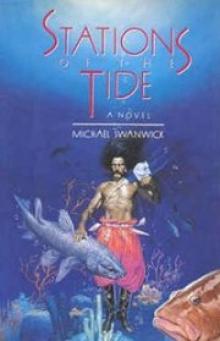 Stations of the Tide
Stations of the Tide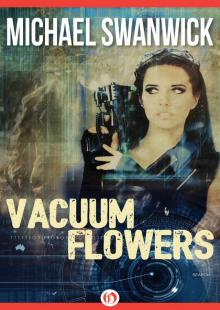 Vacuum Flowers
Vacuum Flowers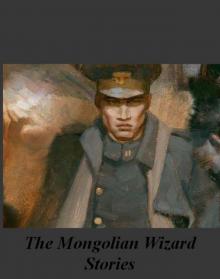 The Mongolian Wizard Stories (online stories 1-7)
The Mongolian Wizard Stories (online stories 1-7)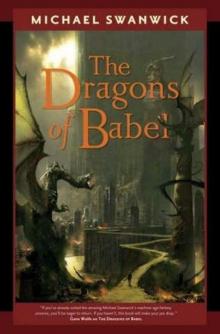 The Dragons of Babel
The Dragons of Babel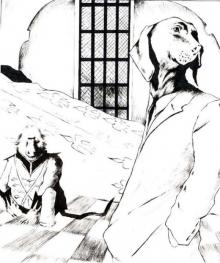 The Dog Said Bow-Wow
The Dog Said Bow-Wow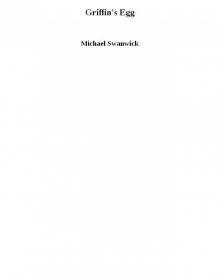 Griffin's Egg
Griffin's Egg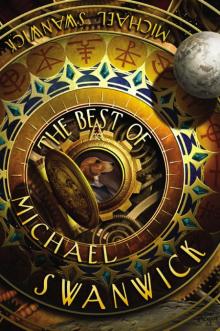 The Best of Michael Swanwick
The Best of Michael Swanwick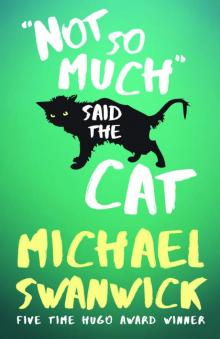 Not So Much, Said the Cat
Not So Much, Said the Cat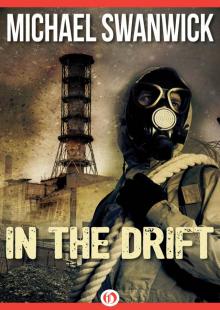 In the Drift
In the Drift Vacumn Flowers
Vacumn Flowers Slow Life
Slow Life The Wisdom Of Old Earth
The Wisdom Of Old Earth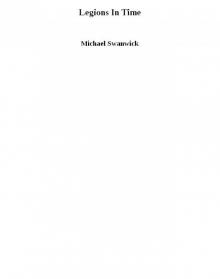 Legions In Time
Legions In Time Scherzo with Tyrannosaur
Scherzo with Tyrannosaur The Year's Best Science Fiction (2008 Edition)
The Year's Best Science Fiction (2008 Edition)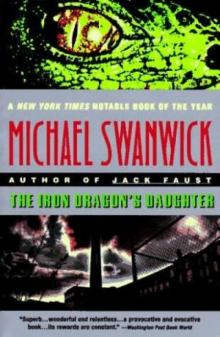 The Iron Dragon's Daughter
The Iron Dragon's Daughter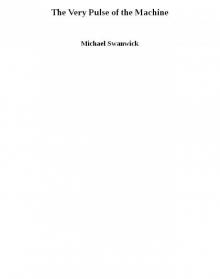 The Very Pulse of the Machine
The Very Pulse of the Machine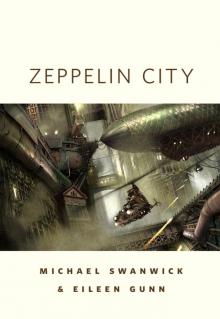 Zeppelin City
Zeppelin City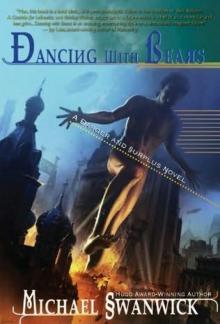 Dancing with Bears
Dancing with Bears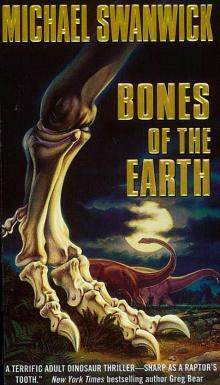 Bones of the Earth
Bones of the Earth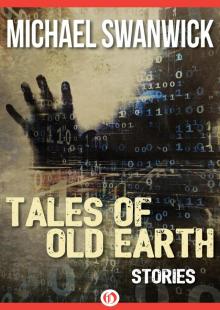 Tales of Old Earth
Tales of Old Earth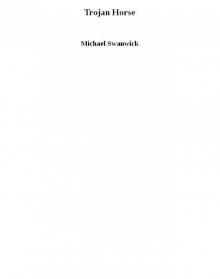 Trojan Horse
Trojan Horse Radiant Doors
Radiant Doors